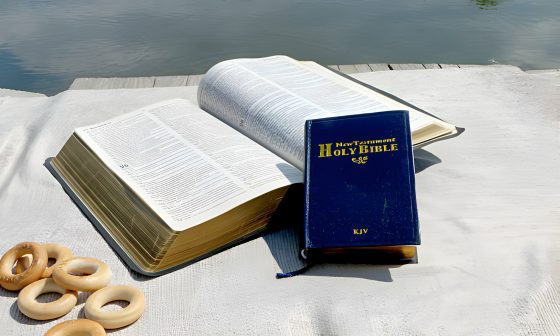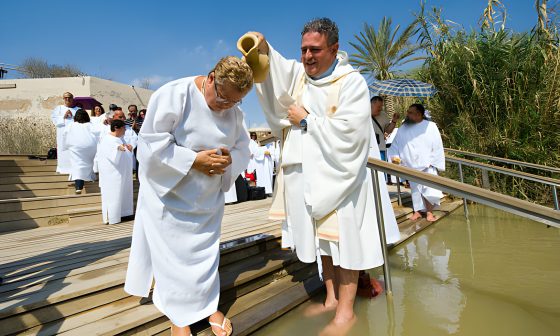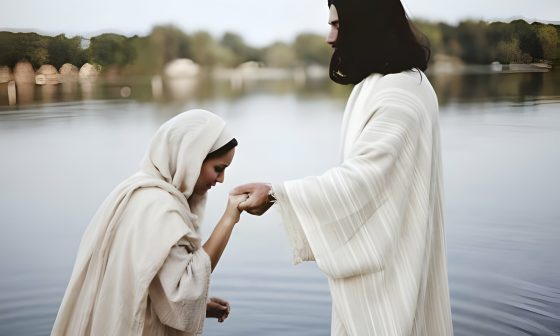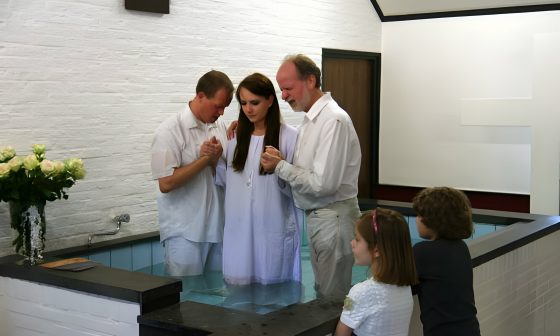Can I Baptize Myself?
Baptism is a significant sacrament in Christianity, symbolizing the cleansing of sins and entry into the faith community. Traditionally, baptism is administered by ordained clergy or designated individuals within a religious setting. However, there may arise situations where individuals contemplate baptizing themselves, leading to questions about the legitimacy and theological implications of self-baptism.
Understanding Self-Baptism
Self-baptism, also known as auto-baptism, refers to the act of an individual baptizing themselves without the involvement of a clergy member or another person. While the practice of self-baptism is not explicitly addressed in most Christian denominations, it has been a topic of debate and consideration among believers.
Theological Perspectives
From a theological standpoint, opinions on self-baptism vary across different Christian traditions. Some denominations adhere to the belief that baptism should be administered by ordained clergy or designated individuals to ensure its validity and adherence to religious teachings. Others view self-baptism as a valid option in exceptional circumstances, such as emergencies or when access to a minister is limited.
Biblical References
The Bible does not provide specific instructions regarding self-baptism. Instead, baptism is often depicted as a communal act administered by individuals appointed by Jesus or the apostles. However, biblical passages emphasizing the importance of baptism for salvation may influence individual interpretations of self-baptism.
Controversies and Considerations
Self-baptism raises several controversies and considerations within Christian theology. Some argue that the involvement of ordained clergy is essential to ensure the sacramental validity of baptism and its adherence to religious tradition. Others view self-baptism as a legitimate option for individuals seeking to express their faith independently.
Practical Implications
From a practical standpoint, self-baptism may raise questions about the proper administration of baptismal rites, the use of water, and adherence to religious rituals. Additionally, the legal recognition of self-baptism may vary depending on local laws and religious regulations.
Consulting Religious Authorities
Before considering self-baptism, individuals are encouraged to consult with religious authorities or spiritual advisors within their faith tradition. These individuals can provide guidance on the theological implications of self-baptism and whether it aligns with the beliefs and practices of their denomination.
Can i baptize myself in the shower?
While baptism is traditionally performed using water in a religious setting, some individuals may consider baptizing themselves in the shower due to convenience or personal circumstances. However, it’s essential to understand the theological and practical implications of such an act.
From a theological perspective, the validity of self-baptism in the shower can vary among different Christian denominations. Some churches require baptism to be administered by ordained clergy or designated individuals within a religious context to ensure its sacramental validity. In contrast, others may view self-baptism in the shower as a valid expression of faith and commitment to Christian beliefs.
Practically, baptizing oneself in the shower presents challenges in adhering to traditional baptismal rituals and symbolism. The use of running water in the shower may not align with the symbolic immersion or pouring of water typically associated with baptism. Additionally, the absence of clergy or witnesses may raise questions about the sacramental validity of the baptism.
Before considering self-baptism in the shower, individuals are encouraged to consult with religious authorities or spiritual advisors within their faith tradition. These individuals can provide guidance on the theological implications of self-baptism and whether it aligns with the beliefs and practices of their denomination.
Ultimately, the decision to baptize oneself in the shower should be made with careful consideration of one’s faith, beliefs, and adherence to religious teachings. While it may offer convenience in certain circumstances, individuals should prioritize the spiritual significance and validity of baptism in their decision-making process.
How to baptize yourself in the shower
Baptism is a significant and sacred ritual in many religious traditions, symbolizing spiritual purification and initiation into the faith community. While traditional baptism is typically administered by ordained clergy or designated individuals within a religious setting, some individuals may consider self-baptism in the privacy of their homes, including in the shower. Here are some steps to consider if you are contemplating self-baptism in the shower:
- Understand the Symbolism: Before proceeding with self-baptism, it’s essential to understand the symbolic significance of baptism within your faith tradition. Baptism represents the cleansing of sin and the rebirth into a new life in Christ. Research and reflect on the meaning of baptism in your religious context to ensure a meaningful and reverent experience.
- Prayer and Intention: Begin by praying and setting your intention for the baptism. Express your desire to dedicate yourself to your faith and commit to living a life aligned with its principles. Offer a prayer of confession, repentance, and gratitude, seeking spiritual purification and renewal.
- Gather Supplies: While traditional baptism involves immersion in water or the pouring of water over the individual’s head, self-baptism in the shower can be adapted to accommodate the available space and resources. Ensure that the shower is clean and free from distractions. You may also choose to use a container to collect water for pouring over your head.
- Invocation of the Trinity: Invoke the presence of the Holy Trinity—Father, Son, and Holy Spirit—during the baptismal ritual. Offer prayers or recite scripture passages that affirm your faith in God and acknowledge the spiritual significance of baptism.
- Pouring of Water: Stand under the running water of the shower or use a container to pour water over your head, symbolizing the cleansing and purifying waters of baptism. As the water flows over you, visualize the washing away of sin and the spiritual renewal of your soul.
- Affirmation of Faith: As you baptize yourself, recite affirmations of faith or scripture verses that resonate with your beliefs. Declare your commitment to following the teachings of your faith and living a life of righteousness and service.
- Reflection and Gratitude: Take a moment to reflect on the experience of self-baptism and express gratitude for the opportunity to reaffirm your faith. Offer prayers of thanksgiving for God’s grace and the gift of spiritual renewal through baptism.
- Community and Accountability: While self-baptism can be a deeply personal and meaningful experience, it’s important to remember the value of community and accountability in the Christian faith. Share your experience with trusted spiritual advisors, mentors, or fellow believers who can offer guidance, support, and encouragement on your spiritual journey.
- Continued Spiritual Growth: Self-baptism in the shower can be a significant step in your spiritual journey, but it is just the beginning of a lifelong process of growth and transformation. Stay connected to your faith community, engage in spiritual practices, and seek opportunities for ongoing learning and service.
Remember that while self-baptism in the shower can be a meaningful expression of faith for some individuals, it may not be recognized as sacramentally valid by all religious traditions. It’s essential to consult with spiritual leaders or advisors within your faith community for guidance and support if you have questions about the validity or appropriateness of self-baptism in your religious
Can You Baptize Yourself?
While some individuals may consider baptizing themselves, most Christian denominations require baptism to be administered by a minister or church leader. This is because baptism is seen as a sacrament that signifies spiritual rebirth and entry into the Christian community. Therefore, it’s advisable to consult with church leaders and adhere to the practices of your faith tradition regarding baptism.
Conclusion
In conclusion, the practice of self-baptism remains a topic of debate and consideration within Christian communities. While some adhere to the belief that baptism should be administered by ordained clergy for sacramental validity, others view self-baptism as a valid option in certain circumstances. Ultimately, the decision to self-baptize is influenced by individual beliefs, theological interpretations, and personal convictions.
FAQs (Frequently Asked Questions)
- Is self-baptism mentioned in the Bible?
- Self-baptism is not explicitly mentioned in the Bible. The Scriptures emphasize the role of ordained ministers in administering baptism.
- Can I baptize myself if no one else is available?
- In exceptional circumstances where no ordained minister is available, some denominations may permit self-baptism as a temporary measure until baptism can be administered by a qualified individual.
- What is the significance of baptism within the Christian community?
- Baptism serves as a public declaration of one’s faith in Christ and participation in His death and resurrection. It also signifies incorporation into the community of believers.
- Can a person be baptized more than once?
- While some Christian denominations recognize only one baptism as valid, others may allow for rebaptism under certain circumstances, such as a reaffirmation of faith.
- What if someone was baptized as an infant but desires believer’s baptism later in life?
- Some individuals who were baptized as infants may choose to undergo believer’s baptism later in life as a personal expression of faith and commitment to Christ.






